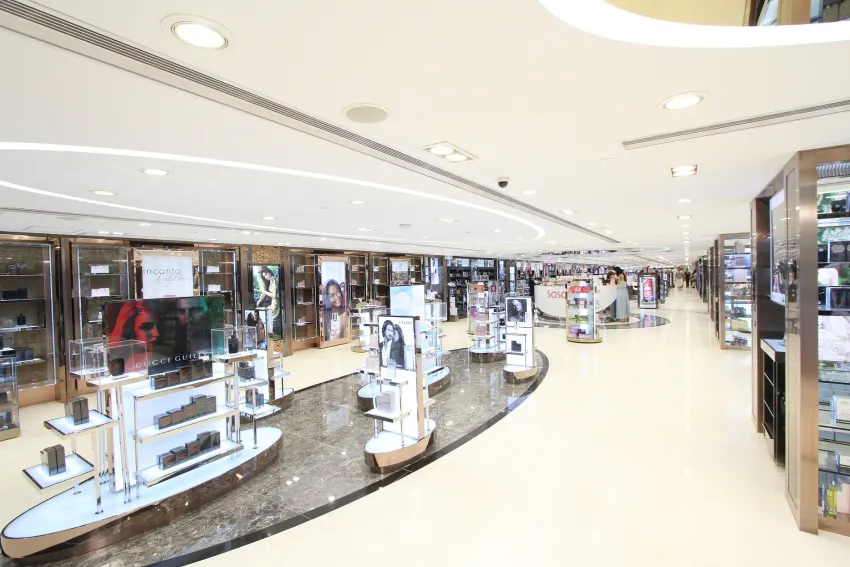
Hotels and shops take heavy beating as protests reverberate across Hong Kong
In August alone, tourist arrivals plunged 40% in its sharpest decline since the 2003 SARS crisis.
A year ago, when the trade dispute was just beginning to afflict the region, Hong Kong’s business sector probably never thought that things could make a turn for the worse. But destiny rolled the dice in the form of the much-contested extradition bill. What began as a movement seeking its withdrawal has turned into a full-fledged social upheaval, gravely denting local and international businesses in the city. Not even the withdrawal of the bill in early September allayed the protestors’ discontent.
The result is a lacklustre third quarter that saw the city’s various business sectors, already struggling under the weight of a weakened renminbi and protracted trade dispute, take another heavy hit from plummeting tourist numbers and cautious spending. In August, tourist arrivals plunged 40% in its sharpest decline since the 2003 SARS crisis. In the same month, the retail sector plunged to its worst performance on record since the Asian Financial Crisis in 1998.
Stand-alone restaurants and small to mid-size retailers are also closing down as sales steadily crashed in September. Even international luxury brands are feeling the pain: British fashion house Burberry and French high-brand Hermes are expected to book as much as hundreds of millions in losses during the period with the latter temporarily closing some of its five stores, including its airport shop.
Inhospitable conditions
An estimated 20-30% of businesses in Hong Kong, including cosmetic retailer Sa Sa International and luxury hotel The InterContinental, have reportedly told their staff to take several days of both paid and unpaid leave in light of the mass protests that have brought the city to a standstill.
A collapse in hotel bookings, which was primarily attributed to the steep crash in visitor arrivals from Mainland China, led to a 13% YoY decline in revenue per available room (RevPAR) in July alone, data from CBRE show. According to Edmond Wong, director for valuations & advisory services, hotels at CBRE Hong Kong, citywide RevPAR could drop by more than 15% for FY 2019. “RevPAR performance varied across different segments but has displayed signs of decline since early 2018. RevPAR fell by 1.98% YoY for high tariff A hotels, rose by 0.31% YoY for high tariff B hotels, and declined by 0.79% YoY for medium tariff hotels,” he explained. “Citywide occupancy fell by 100 bps to 90% as the rise in overnight visitors was insufficient to sustain the current level of high hotel occupancy.”
As the unrest scared tourists away, citywide occupancy rates dropped between 30-40% in August, according to Simon Haven, senior analyst at market research provider Euromonitor International. “We have heard testimonies that certain hotels saw their number of check-ins fall to five to six per day during the days where the protest hit the hardest,” he told Hong Kong Business.
No commercial establishment appears to be exempt from the visitor decline. “Disneyland and Ocean Park, the two major tourist attractions in Hong Kong, do not report monthly visitor statistics, but there have been reports and pictures of the parks being empty this summer,” Haven said. “We have not heard of any attractions cutting down on their opening hours, but employees have also been asked to take up to four days of unpaid leave per month.”
Major conferences and events such as the Hong Kong Tattoo Convention, which would have seen over 300 artists and thousands of attendees from all over the world in November 2019, has been cancelled, whilst the 2019 Global Wellness Summit (GWS) gathering 600 industry experts was relocated to Singapore in light of the unrest. Although a spokesperson from the Hong Kong Tourism Board (HKTB) noted that flights at Hong Kong International Airport are ‘operating as normal’, Haven saidthat this may not be entirely true from the other end of the flight journey. “Several airlines have been reducing their service to the region, with Qantas’ CEO say[ing] at the latest FY earnings call that the company has seen reduced demand for flights to Hong Kong, and hence would be downgrading the route,” he explained. “United Airlines has also suspended its direct connection between Chicago and Hong Kong, although it did not blame the decision on the protests directly.”
As many as 40 countries and jurisdictions have issued travel advisories against going to Hong Kong, heaping further pressure on the tourism sector.
Retailers suffer heavy blows
Given the intricate relationship between tourism and spending, the retail front also took a heavy beating. In the first six months of the year, retail sales slipped 2.6% YoY.
Sales of luxury goods nearly halved not only because of dwindling tourist numbers—by which it had traditionally relied on—but also due to the cautious spending by locals. In August, sales of medicines and cosmetics saw a 16.5% drop, apparel with a 13% decline and department store sales with a 10.4% fall.
“As we recall, 2013 was the year when luxury sales reached its peak. Last year had already seen it drop 27% from that peak. Judging from official statistics, however,
this year’s luxury sales figure is expected to fare even worse,” Knight Frank said in a report. “At estimated $70b, it means that it would fall 40% from the peak of 2013. It is comparable to the recent trough of 2016.”
Sa Sa International reportedly saw its share price fall by close to 25% in August, whilst sales dropped by 32% in its Hong Kong and Macau operations. In a profit warning announcement filed with the Hong Kong Exchange (HKEX), the firm outlined a prudent finance management approach to cushion the operational impact of the challenging environment such as proactive implementation of cost control initiatives, including rental reduction negotiations with landlords, and reducing operational expenses such as staff and administration costs.
Denis Ma, head of research at JLL Hong Kong, noted that the decline in retail sales is negatively affecting turnover rents, which in turn has caused rental income in shopping centres to trend lower. “On the streets, the disruption has put greater pressure on shop rents that were already slipping against slowing sales through the first half of the year,” he said.
On its part, landlord Swire Properties gave a temporary rental cut to most of its tenants in the first time that a major shopping centre offered adjusted rents amidst a failing retail environment roiled by a triple whammy of trade tensions, a weakening yuan, and social unrest.
In Causeway Bay, where many of the protests take place, a vacant Percival Street shop halved its rent. Data from Centaline Commercial revealed that the 1,000 sqft space is being offered for only $200,000, representing a 55% discount compared to the lease paid by its previous tenant China Mobile. Even fashion startup hub Lai Chi Kok did not escape the rental culls. D2 Place, owned by textiles firm Lawsgroup, announced a 20% rental reduction that translates to a seven-digit loss in rental revenue. A D2 Place spokesperson said that the decision was made for the sake of 100 tenants of the centre.
“Hong Kong’s retail sector remains an important cog of the local economy. In recent years, the sector has accounted for less than 2% of the city’s GDP but around 3% of all persons employed, putting it amongst the largest employers in the city by industry trade,” Ma underlined. “Weakness in the retail sector, however, would have a contagion effect on other parts of the economy such as the property market, finance, professional services, merchandise trade, etc.”
In August, Prada surrendered its lease on Russell Street in Causeway Bay, which has a $9m monthly rent for the 15,000 sqft space. Korean fast-fashion brand SPAO is also shutting down its Hong Kong branch.
In the meantime, some companies are renegotiating their leases. “There are cases of tenants requesting a rental decrease, hoping to overcome [the] market down fall,” said Raiky Wong, director of retail department at Centaline Commercial.
Centaline’s Wong shared that a lower ground floor space at the Malahon Center in Central was rented out to a bar for $293,000, a 22% discount from the $380,000 that was for by its previous tenant, Wong Chi Kei restaurant, which translates to a $1.04m loss in a year.
Eating away at sales
Fewer tourists also spell a disaster for restaurants, which rely heavily on tourist spending. Restaurant receipts dropped 0.4% to $28.7m in Q2, impacted by the yearlong trade war and weaker yuan. With the number of tourists almost halved and people reining in spending, it is increasingly likely that the restaurant sector will report far
gloomier Q3 numbers. In September, Cushman & Wakefield estimates that business for Chinese restaurants was down by 10-12% and non-Chinese restaurants down by 5-7%, although the fast food and drinks sector maintained a growth of 1-4%.
“I’ve actually observed that some of the restaurants in the normal rush hours have been very quiet,” David Ji, director and head of research & consultancy for Greater China at Knight Frank, told Hong Kong Business. “The most impacted prices will be the restaurants which heavily depend on foot traffic, from tourists and from [locals].
Hong Kong is a place where people like to go out and have food. But the protests are unpredictable and if they deem it unsafe... people are unsure and are unwilling to go out.”
With fewer receipts to show, retailers face only two choices: stay and hope for recovery; or cut their losses and close down.
“Retailers are unlike other commercial sectors: they can’t just move from one district to another. You’re either in a street that attracts the most customers or you’re not. You can’t just move it to a cheaper location. Say if you are an international brand, why would you want to move to a secondary location? So you’re either in that location or you just withdraw,” said Ji.
Shop sale prices are falling with a 1,089 sqft ground floorstall at Poplar Street in Sham Shui Po being sold at $18m or 35% lower than the original asking price. A 1,100 sqft space at Boundary Street, Prince Edward was also purchased 25% below its asking price, added Centaline’s Wong. Sellers lost $10m and $8m, respectively, from these two transactions alone.
“The landlords themselves are also under pressure because if they own shops in the prime streets, it used to be filled with luxury retailers. But [now] the luxury spending of tourists has dropped quite significantly, not only because of the trade war but also because nowadays they are spending more on the mid-priced items,” Ji said. “So the landlords themselves cannot guarantee they can rent it out to luxury retailers; they will have to accommodate more mid-range retailers such as sports goods or medicine in cosmetic shops. In that sense, the rental price that they are offering has to drop,” he added.
As of September, Knight Frank expects retail rents in prime streets to fall by at least 15% for 2019. Centaline took a more cautious stance, with Wong expecting shop rents to drop between 20-30% by end- 2019. “At the same time, as the rent drop will make the rental return decrease, some owners will mark down their asking prices so as to attract investors to buy shops, so we forecast shop sales prices may fall around 10% to 15% by year end,” Centaline Wong continued.
Curbing the tide
In an attempt to lend support business activities amidst the sociopolitical unrest, the HKTB has rolled out relief measures, enabling over 8,000 merchants accredited under the HKTB’s Quality Tourism Service Scheme to have their full renewal fees waived for one year from 1 October 2019 to 30 September 2020. A 50% reduction
on the application fee will also be applied for new applications to the scheme.
“Starting 1 October 2019 to 31 March 2020, we will waive the participation fees of the local travel trade who join trade fairs and travel missions organised by the HKTB outside Hong Kong,” the board’s spokesperson told Hong Kong Business. Likewise, the government has waived issuing fees and renewal fees for the Hotel and Guesthouse Licence and Travel Agent Licence, whilst the Travel Industry Council of Hong Kong (TIC) has waived its membership fee for its travel agent members.
“It will be important for the HKTB to own the narrative as there are headlines of protests beamed around the world. It is important to showcase and communicate that safety and security of visitors is paramount, and that no visitors have been caught up in the protests. It will also be important for the HKTB to remind people that the protests are localised in specific areas, meaning that there are still plenty of other destinations within Hong Kong, such as Lantau Island and its Tian Tan Buddga, Lamma Island, and the Nan Lian Garden in Wong Tai Sin,” Haven of Euromonitor said.
It remains to be seen how Hong Kong can revive its all too important tourism industry in light of the persistent unrest. “The most worrying thing is that the situation is not likely to turn around in the near future,” Financial Secretary Paul Chan wrote in a blog post in September. Chan refuses to rule out the possibility of a technical recession after the local economy had overall shrank 0.4% QoQ in Q2.
Residential holds down the fort
Like retail and tourism, August marked one of the gloomiest months for the residential property market.
Monthly sales dropped 17.6% to 4,084 units compared to June’s 6,211 sold units whilst total consideration crashed 30.4% YoY to $42.4b on a yearly basis, according to data from the Land Registry. September figures are of the same tone, if not worse than August sales crashed 14.8% YoY to 4,090 units, whilst total consideration slid 20% YoY to $36.4b. This represents a 14.2% decline from August.
But despite these gloomy numbers, the protests’ impact on the residential property front is “less obvious” compared to other sectors, said Knight Frank’s Ji. “[This is] because the price is only dropping in a zero-point-something on a monthly basis. We’re still seeing oversubscriptions in some of the first hand sales, although the number of sales in the second hand market has dropped quite dramatically,” he observed.
There is room to argue that the residential market has yet to feel the impact of the protests in the same way that the protracted trade war has been hitting businesses: slowly but surely. “The trade war has dragged on for a year now and Hong Kong has limited options in terms of manipulating their monetary system. So [similar to the trade war] the impact will be felt more [in] long term,” he added.
The declines in residential sales was mainly driven by falling sales in the secondary home market, down 15% YoY. Knight Frank’s September property report noted that investors’ appetite soured in response to the prolonged protests. Data from Centaline Property also revealed that earnings from secondary sales also declined 19.57% YoY to $226.4m compared to the $281.5m earned in August 2018. Since 2018, secondary transactions have been on a decline, down 17% in the first nine months of the year. Ji explained that sellers remain hesitant in the face of both the protests as well as the effects of the ongoing trade war.
Soaring housing prices, insufficient public housing and a tight mortgage policy have pushed buyers toward the primary markets as developers at least offer secondary mortgages, added Ji. Home price corrections are projected to continue in the coming months, particularly in the secondary market, according to the Knight Frank report.
However, there is a chance that things might turn around. Louis Chan, vice president and CEO (Residential) for Asia-Pacific at Centaline Property, believes that transactions will pick up now that the extradition bill has been withdrawn.
The uplift of the loan-to-value (LTV) ratio cap for first time buyers is also likely to revitalise the secondary market and drive the prices of mid-end properties, according to OCBC Investment Research. Under the new rule, first time buyers are eligible for 90% LTV for properties value lower than $8m, and 80% for properties priced less than $10m (from $6m).
Contrary to expectations, property agents have not observed any suspended or delayed launches. “We’re expecting some launching activities in the next few months. So we haven’t seen any real announcement publicly saying that they will delay their project launch,” Ji said. “But I think, it will have more impact on the construction side, because the constructors and the developers of those projects that have been built or are planning to be built might take a more cautious view to see what happens in the next few months.”
On the posh side, the luxury residential market held steady. A house on Mount Nicholson with a saleable area of 6,326 sqft was sold for $538.9m or at $85,188 psf. A house on 45 Tai Tam Road was also sold for $99,335 psf, which is a record-high in the district.
But this doesn’t mean that the overall primary market was left unscathed. Though oversubscribed, units at The Aurora in Tsuen Wan were offered a 10% cheaper rate by its developer Billion Development & Project Managers compared to the nearest project in the neighborhood. Wheelock Properties also priced the Marini development 8% below property prices sold in the area just two months ago at around $14,997 psf, a discount of more than 20%.
However, it is likely that such discounts were offered due to several conditions and non-political developments, said Knight Frank. “Let’s say if more people come to buy, then they can apply the discounts selectively and then raise the price according to the size of the crowd as well,” added Ji. “If you have a normal subscription, why do you want to offer a discount? That just defies logic.”
On the leasing front, landlords have become more flexible in lease negotiation. For example, some are offering a rent-free period in the hopes of attracting new tenants. There has also been an increase in renewals as existing tenants want to avoid moving costs. Overall demand remained stable, driven by local tenants.
Professional services takes a beating
Against persistent protests that reverberated across the property sectors, the professional services sector has not been left unscathed. According to a survey by AmCham Singapore, 80% of respondents - 64% of which have offices in Hong Kong - said that the political unrest has affected their decision to invest in Hong Kong. More than half of the respondents also shared sentiments that the protests have tarnished Hong Kong’s reputation as a regional base of operations for businesses and as a centre of excellence for the rule of law. “The immediate risk for HK’s reputation lies in it being the regional base of operations, as it is unlikely to attract those who are currently not having any presence in HK,” the report said.
Nine in ten respondents whose regional headquarters are based in Hong Kong indicated Singapore as their top choice should they wish to relocate. A February 2018 report from KPMG revealed that Singapore edges out Hong Kong as the top Asian location for multinational corporations (MNC) to set up regional headquarters, thanks to its favourable tax policies. There are about 46% of Asian MNCs stationed in Singapore, whilst only 37% choose to settle in Hong Kong. In terms of big tech corporates, the disparity is more evident, with Singapore hosting more than half (59%) compared to 18% in Hong Kong. The Philippines and China both account for 4% of tech MNCs whilst Taiwan and Malaysia house 2%.
The number of firms reportedly moving their regional headquarters out of Hong Kong, coupled with inbound investments being put on hold, may spell trouble for the accounting sector that rely on these firms for clients. In addition to the accounting sector, law firms are on the hot seat as well. In a statement, the Law Society of Hong Kong said that they are seeing court injunctions and have been receiving criticisms on the leniency of judges in handling protest-related cases. Lawyers and other legal professionals are also finding it difficult to do business as they cite a number of their clients that were arrested during the protests and “were denied timely access to legal assistance and representation,” a media statement from the Hong Kong Bar Association revealed.
“There is no doubt that the attractiveness of Hong Kong as an international financial centre will continue if these fundamental core values upholding the rule of law and the independence of the judiciary are maintained intact,” Law Society said.
Engineering firms have also been trimming down their headcount as the unrest continues to threaten profitability. Ir. Ringo Yu, the president of The Hong Kong Institution of Engineers, told Hong Kong Business that the organisation employs around 300,000 individuals under the engineering or construction industry although their security of tenure is put at risk.
“The unrest has really upset the whole development of the engineering industry,” said Yu. “Job security is quite difficult for the employees and I heard that some of the large construction engineering firms are cutting staff, including engineering consultants. There may be low employment coming up.”
In addition to layoffs, employee productivity has also taken a hit as employees struggle to go to work amidst worsening traffic conditions. Yu added that the protests have also damaged Mass Transit Railway (MTR) stations and traffic lights as well as their construction work. “You can do construction works on site. But let’s say we want to pour concrete, we need to have a time constraint from the delivery to pouring the concrete, which takes two hours to do so. With the traffic condition, you’re not sure whether we could do it,” Yu added.
The engineering and construction industry is heavily reliant on government projects, which usually consists of redevelopments, according to Yu. The government has set aside $70b to the completion of projects, prompting investors to put most of their investments on hold. Some of the projects that were put on hold include the $18b integrated basement in West Kowloon Cultural District, $7b water treatment works, $2.4b public housing developments in Wang Chau, the $10.9b redevelopment of Kwai Chung Hospital, Prince of Wales Hospital and an expansion up North District Hospital and Princess Margaret Hospital.
By Arianna Danganan, Frances Gagua and Nathanielle Punay
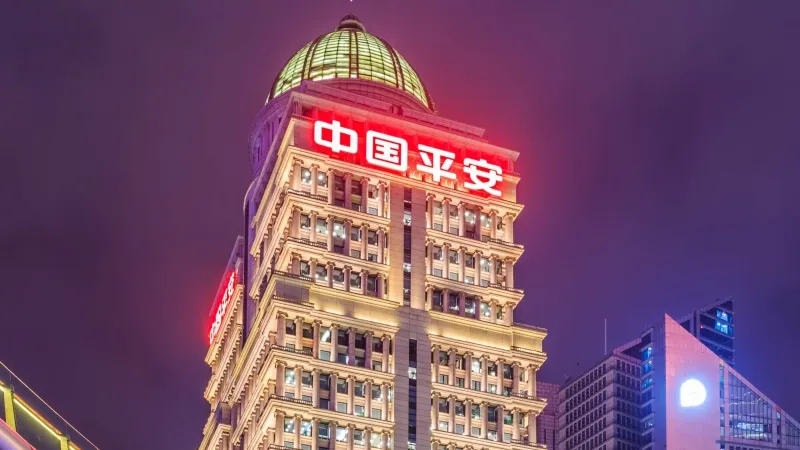
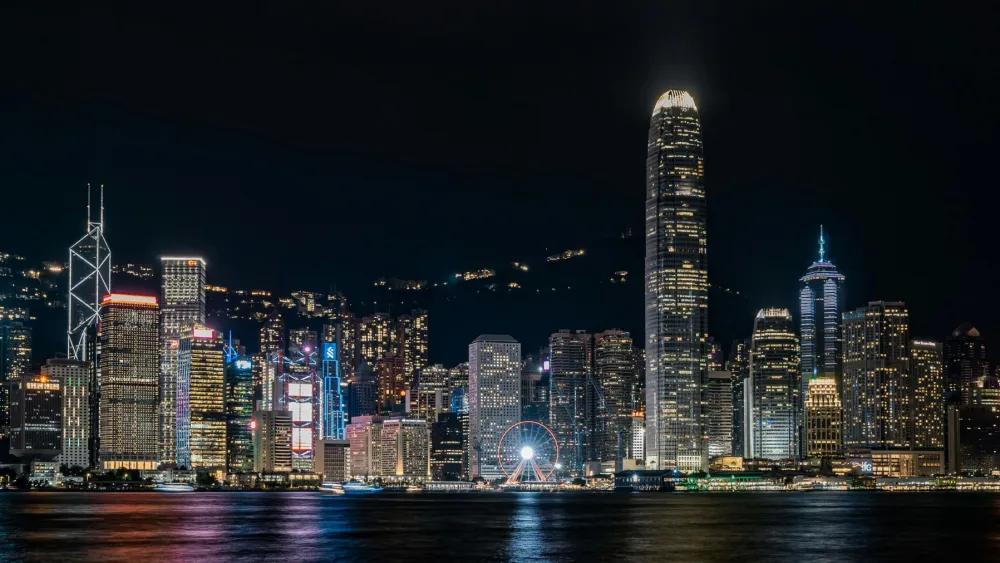

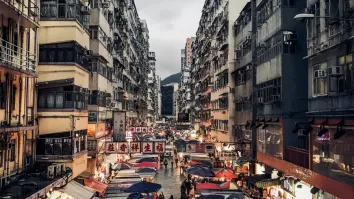

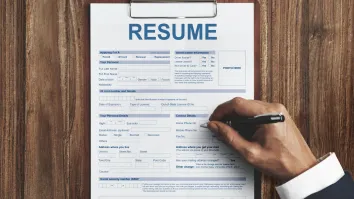













 Advertise
Advertise






